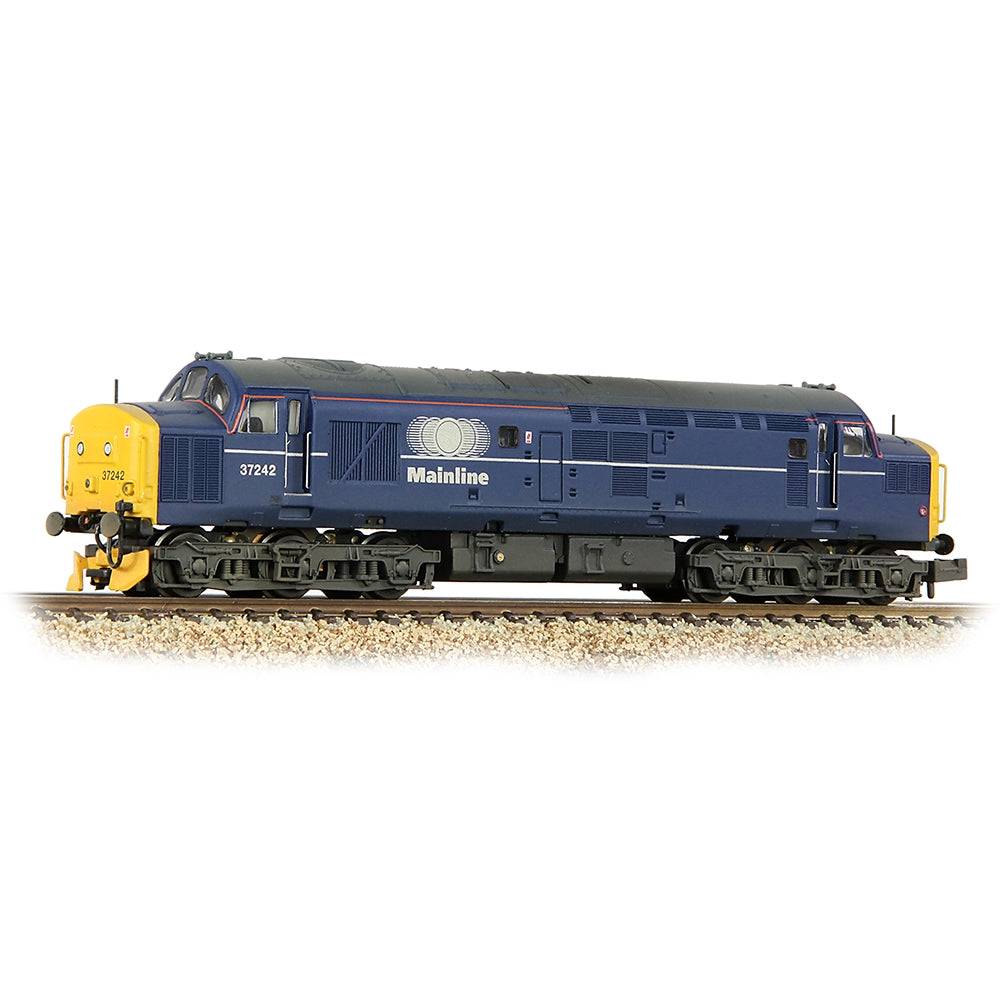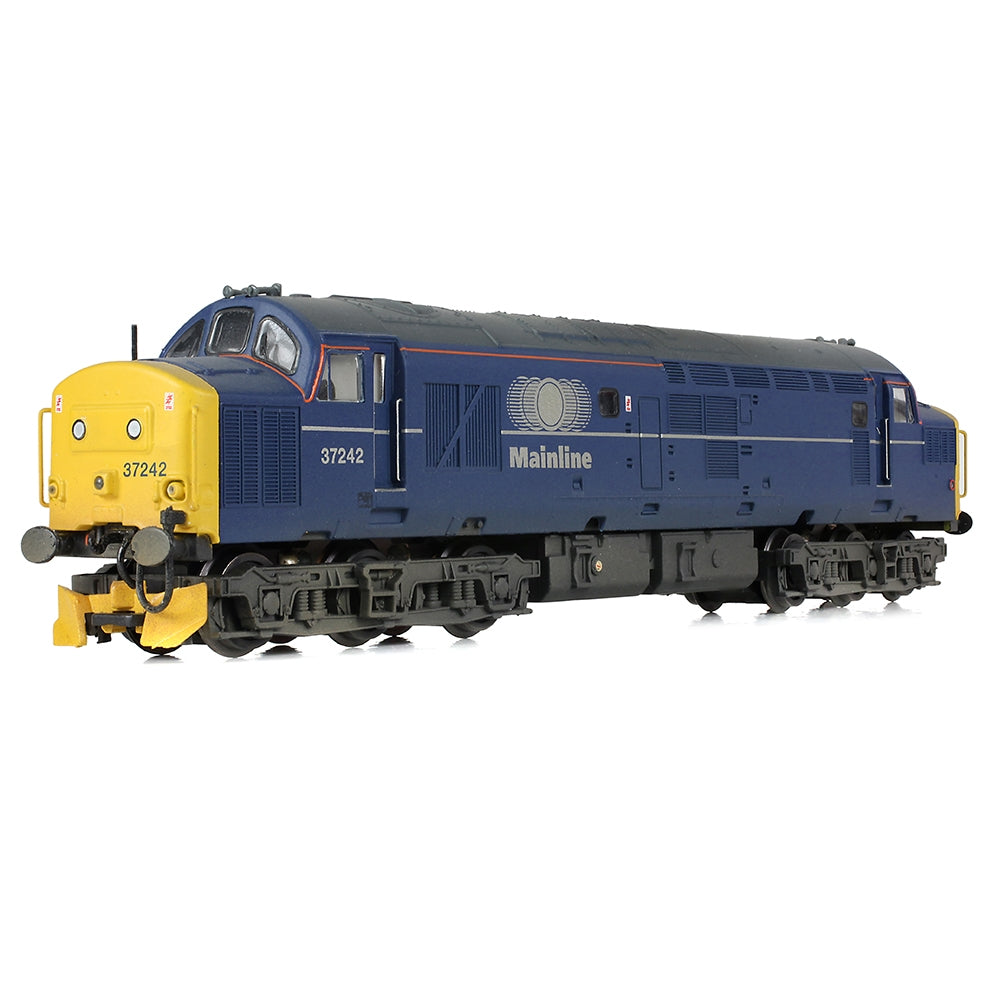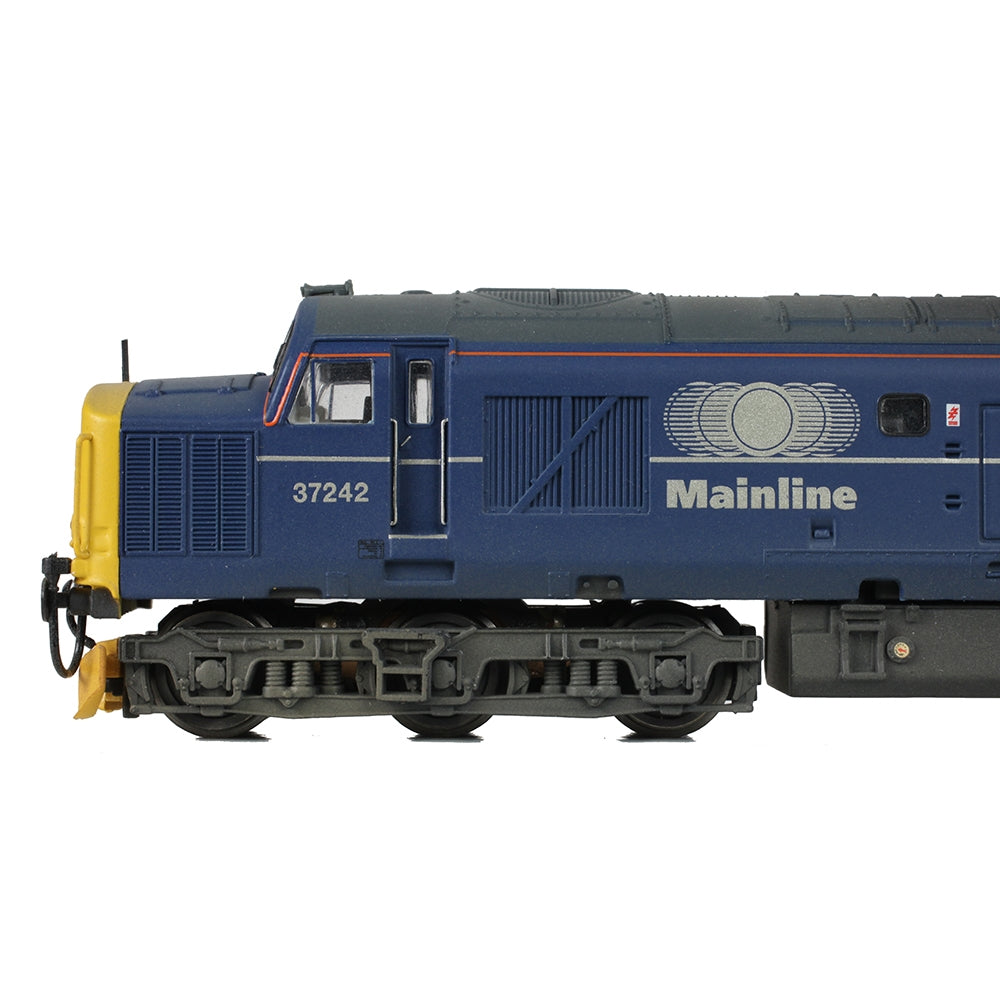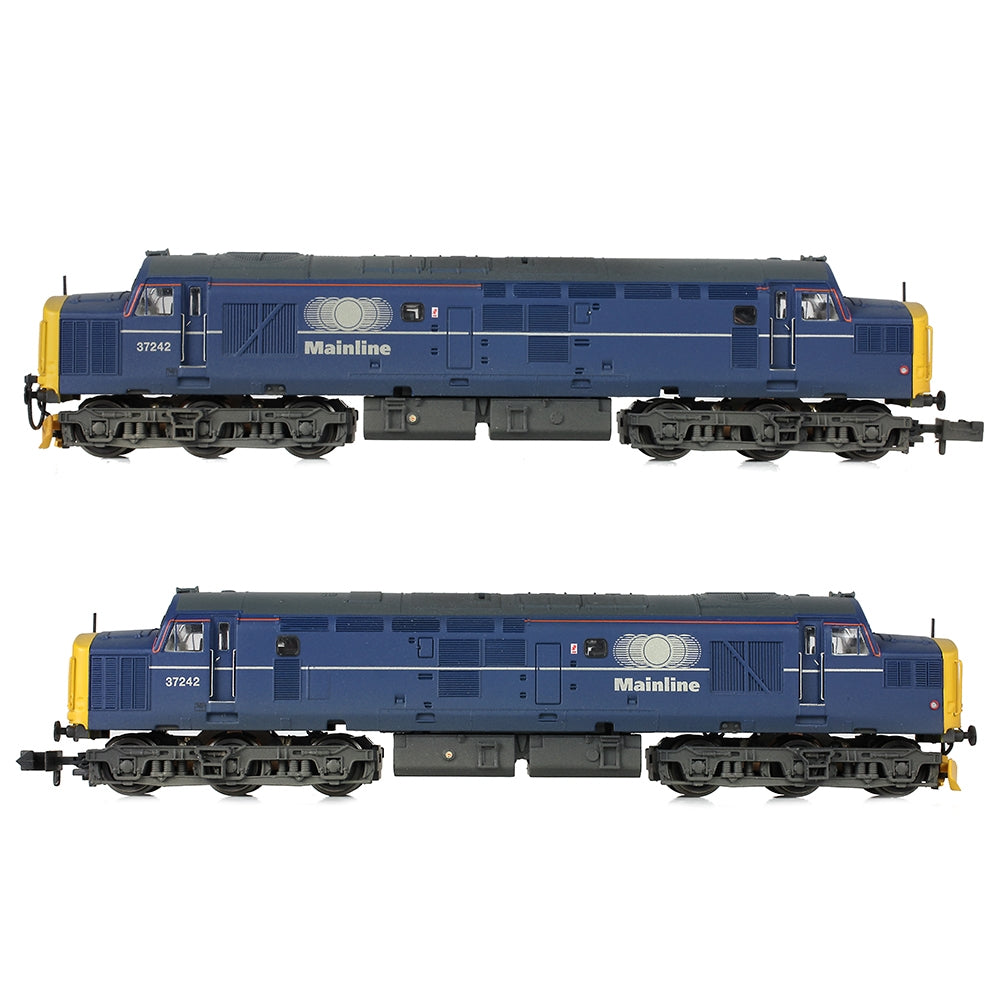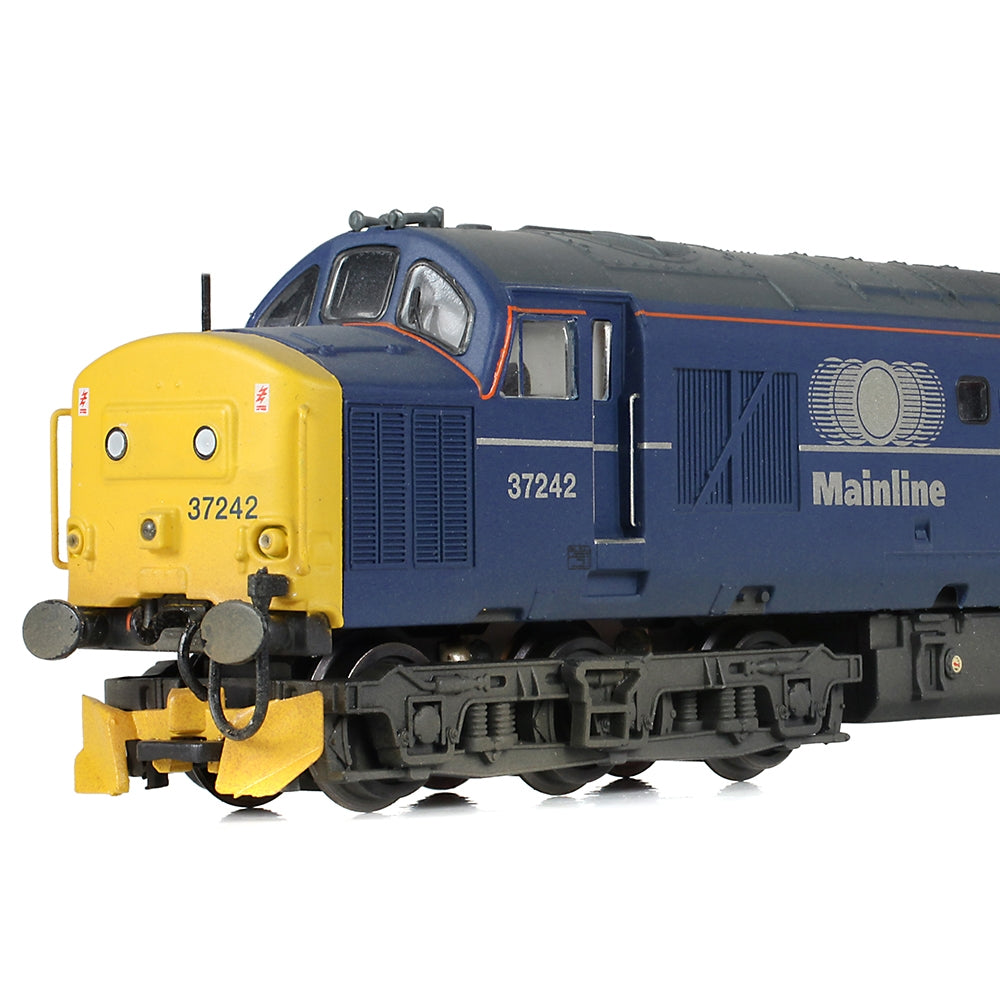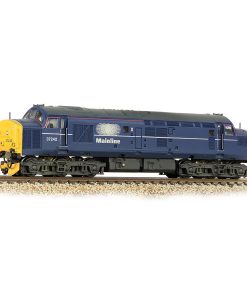GRAHAM FARISH N Class 37/0 Centre Headcode 37242 Mainline Freight [W] GRAHAM FARISH
$ 235,99 $ 94,40
GRAHAM FARISH N Class 37/0 Centre Headcode 37242 Mainline Freight [W] N SCALE.
The British Rail Class 37 is a diesel-electric locomotive. Also known as the English Electric Type 3, the Class was ordered as part of the British Rail modernisation plan. They were numbered in two series, D6600-D6608 and D6700-D6999.
The Class 37 became a familiar sight on many parts of the British Rail network, in particular forming the main motive power for InterCity services in East Anglia and within Scotland. They also performed well on secondary and inter-regional services for many years. The Class 37s are known to some railway enthusiasts as “Tractors”, due to the distinctive agricultural sound of the diesel engine of the locomotive.
Despite all members of the build now being over 50 years old, over 60 locomotives are still mainline registered and remain active undertaking a variety of passenger, freight and departmental duties on the national rail network in 2019. Approximately 30 locomotives have been preserved.
In the 1980s the Class 37 locomotives were extensively refurbished – from that point 37/0 refers to the original version. The work took place at British Rail Engineering Limited’s Crewe Works except for the 37/3 subclass whose bogies were replaced at various depots.
37/0 remained unmodified after other sub-classes were created
37/3 were rebogied but not refurbished
37/4 were refurbished, rewired, English Electric generator replaced with Brush alternator, electric train supply (ETS) fitted
37/5 were refurbished, rewired, English Electric generator replaced with Brush Traction alternator
37/6 were locomotives from Class 37/5 further modified with through ETS wiring and RCH jumper cables
37/7 were refurbished, rewired, English Electric generator replaced with GEC G564AZ or Brush alternator,[1] additional weight added
37/9 were refurbished, rewired, English Electric generator replaced with Brush alternator, new engines: Mirrlees MB275Tt or Ruston RK270Tt
| Title | Default |
|---|
Quick Shipping and Professional Packaging
Due to our long-term partnership in a long-standing partnership with UPS, FedEx, DHL and many other leading global carriers, we are able to offer an array of shipping options. Our warehouse staff are highly trained and will pack your products according to our precise and precise specifications. Your items will undergo a thorough inspection and be securely secured prior to being delivered. We ship to thousands clients each day across multiple countries. This is an indication of our dedication to being the biggest online retailer in the world. The warehouses are located in Europe as much as they are in the USA.
Note: Orders that include more than one item are assigned a processing time in accordance with the item.
Prior to shipment before shipping, we'll inspect thoroughly the items you've ordered. The majority of orders are shipped within 48 hrs. The time to deliver varies from 3-7 days.
Returns
We don't manage the stock in our warehouse and factory. Stocks are subject to change at any moment. You may not receive your order after the order has been made.
Our policy is for 30 days. If you have passed 30 days by since your purchase, unfortunately we can't offer you a refund or exchange.
The item cannot be used and in its original condition. It should also be in the original packaging.
Related products
RADIO CONTROL
RADIO CONTROL
RADIO CONTROL
RADIO CONTROL
(Clearance Item) HB RACING 5 Cell Main Chassis 2.5mm with Battery Tray (Cyclone) HB RACING
RADIO CONTROL
RADIO CONTROL
RADIO CONTROL
RADIO CONTROL
(Clearance Item) HB RACING 44mm Heavy Duty Universal Drive Shaft/Rear/Steel/2Pcs HB RACING
RADIO CONTROL
RADIO CONTROL
RADIO CONTROL
RADIO CONTROL
